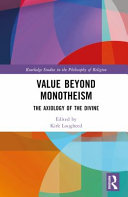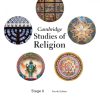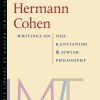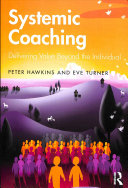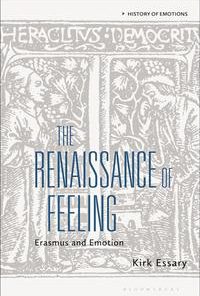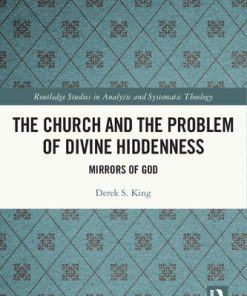Value Beyond Monotheism Routledge Studies in the Philosophy of Religion 1st Edition by Kirk Lougheed ISBN 1000772810 9781000772814
$50.00 Original price was: $50.00.$25.00Current price is: $25.00.
Value Beyond Monotheism (Routledge Studies in the Philosophy of Religion) 1st Edition by Kirk Lougheed – Ebook PDF Instant Download/Delivery: 1000772810, 9781000772814
Full download Value Beyond Monotheism (Routledge Studies in the Philosophy of Religion) 1st Edition after payment
Product details:
ISBN 10: 1000772810
ISBN 13: 9781000772814
Author: Kirk Lougheed
Value Beyond Monotheism (Routledge Studies in the Philosophy of Religion) 1st Edition:
This book expands the current axiology of theism literature by assessing the axiological status of alternative conceptions of God and the divine.
To date, most of the literature on the axiology of theism focuses almost exclusively on the axiological status of theism and atheism. Specifically, it focuses almost entirely on monotheism, typically Judeo-Christian conceptions of God, and atheism, usually construed as ontological naturalism. This volume features essays from prominent philosophers of religion, ethicists, and metaphysicians addressing the value impact of alternative views such as ultimism, polytheism, pantheism, panentheism, and idealism. Additionally, it reflects a wider trend in analytic philosophy of religion to broaden its scope beyond the Judeo-Christian tradition.
Value Beyond Monotheism will be of interest to scholars and advanced students working in the philosophy of religion, ethics, and metaphysics.
Value Beyond Monotheism (Routledge Studies in the Philosophy of Religion) 1st Edition Table of contents:
1. Axiological Pantheism
- 1.1 Introduction
- 1.2 Framing the Dialectic: Axiological Options in the Metaphysics of the Divine and Pantheism
- 1.3 The Central Argument
- 1.4 Intrinsic Value and Organic Unity
- 1.5 A Quick Comparison: OmniGod, NoGod, and PanGod
- 1.6 A More Promising Alternative?
- 1.7 Objections
- 1.7.1 Objection 1
- 1.7.2 Objection 2
- 1.7.3 Objection 3
- 1.8 Conclusion
- Notes
- Bibliography
2. Picking Wholes: The Axiology of Pantheism
- 2.1 Introduction
- 2.2 Pantheism and Axiology Preliminaries
- 2.2.1 What Is Pantheism?
- 2.2.2 What Is the Axiology of Theism/Atheism?
- 2.2.3 The Axiology of Pantheism
- 2.3 Mapping Out Potential Approaches
- 2.3.1 Intra and Inter Comparative Approaches
- 2.3.2 Types of Axiological Upshot: Epistemic, Ontological, Ethical
- 2.3.3 Types of Axiological Upshot: Final and Instrumental Value
- 2.3.4 Which Goods Should We Consider?
- 2.3.5 The Significance of Instrumental Value
- 2.4 Potential Axiological Upshots of Pantheism
- 2.4.1 The Empathetic Consideration
- 2.4.2 The Eschatological Consideration
- 2.4.3 The Physical Primacy Consideration
- 2.5 Arguments for Anti-Pantheism
- 2.5.1 The “Inconsistent with Reality Argument”
- 2.5.2 The Incompatibility between Pantheism and Distinct Persons
- 2.5.3 The Argument from Existential Pessimism
- 2.6 Conclusion
- Notes
- Bibliography
3. Some Deities Are Better than Others
- 3.1 Introduction
- 3.2 Deities Are Contingent Concrete Particulars
- 3.3 Deities Evaluated by Their Moral Actions
- 3.3.1 Doing Morally Unjustified or Justified Violence
- 3.3.2 Committing or Avoiding Violence
- 3.4 Deities Evaluated by Their Political Actions
- 3.4.1 Denying or Respecting the Rights of Persons
- 3.4.2 Political Crimes
- 3.4.3 Meddling versus Non-Meddling
- 3.4.4 Intervention versus Non-Intervention
- 3.5 Deities Evaluated by Their Social Situations
- 3.5.1 Divine Sociality
- 3.5.2 Divine Equality
- 3.5.3 Divine Sexual Solitude
- 3.5.4 Divine Sexual Couples
- 3.5.5 Beyond Heteronormativity
- 3.6 Deities Evaluated by Their Cosmic Actions
- 3.6.1 Divine Intervention
- 3.6.2 Divine Creation
- 3.6.3 Divine Naturalness
- 3.7 Deities Evaluated by Their Biological Characteristics
- 3.7.1 Divine Growth
- 3.7.2 Divine Evolution
- 3.7.3 Divine Rebirth
- 3.8 Atheistic Worlds
- Notes
- Bibliography
4. The Axiology of Panentheism
- 4.1 Models of God
- 4.2 What Is Panentheism? The Problem of Demarcation
- 4.3 Divine Empathy
- 4.4 The General Problem of Creation: Why Create Anything at All?
- 4.5 The Value of Freedom
- 4.6 Concluding Thoughts
- Notes
- Bibliography
5. Hassidic Idealism and the Meaning of Life
- 5.1 What Does “Meaning” Mean?
- 5.2 Theism and the Meaning of Life
- 5.3 Hassidic Idealism
- 5.4 Hassidic Idealism and the Meaningful Life
- Notes
- Bibliography
6. What Does God Add to an Idealist World?
- 6.1 Berkeley’s Theistic Idealism
- 6.1.1 Nontheistic Idealism
- 6.1.2 Nontheistic Phenomenalism
- 6.2 The Axiology of Theism
- 6.2.1 The Persistence of Reality
- 6.2.2 Simplicity
- 6.2.3 Regularities in Nature
- 6.2.4 Intelligibility of Reality
- 6.3 Value for a World versus Value for a Theory
- 6.3.1 Intelligibility of Reality
- 6.4 Conclusion
- Notes
- Bibliography
7. Axiarchism: How to Narrow the Gap between Pro-Theism and Anti-Theism
- 7.1 Introduction
- 7.2 Axiarchism, Theism, and Atheism
- 7.3 Traditional Reasons for Pro-Theism and Anti-Theism
- 7.3.1 Anti-Theism
- 7.3.2 Pro-Theism
- 7.4 How Axiarchism Changes Things
- 7.4.1 Generic Axiarchistic Theism and Atheism
- 7.4.2 Extreme Axiarchism
- 7.5 The Persistent Gap
People also search for Value Beyond Monotheism (Routledge Studies in the Philosophy of Religion) 1st Edition:
how does monotheism impact society
why is monotheism good
value beyond measure
value beyond measure meaning
value based moral theory
Tags:
Kirk Lougheed,Value Beyond,Monotheism Routledge,Studies,Philosophy of Religion
You may also like…
Languages - English as a Foreign Language & Reference
Politics & Philosophy - Ancient & Medieval Philosophy
Uncategorized
Politics & Philosophy - General & Miscellaneous Philosophy
Uncategorized
Religion & Spirituality - Christianity
A Relational Theory of the Atonement 1st Edition Kirk Lougheed
Uncategorized
Uncategorized
The Church and the Problem of Divine Hiddenness 1st Edition by Derek King 1000827437 9781000827439

